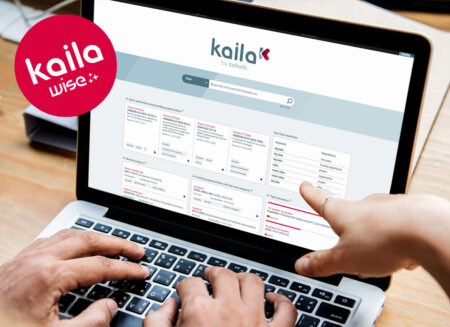This website uses cookies so that we can provide you with the best user experience possible. Cookie information is stored in your browser and performs functions such as recognising you when you return to our website and helping our team to understand which sections of the website you find most interesting and useful.
Human rights focused business models implemented in Colombia and Nambia showcased in Brussels
DG DEVCO (EU Commission) hosted an event about success stories implementing public-private dialogue and due diligence processes.

The Commission’s Directorate-General for International Cooperation and Development (DG DEVCO) has recently hosted the workshop “Successful examples of public-private dialogue in Colombia and Namibia”. ZABALA has showcased in this session the examples of two projects carried out in Latin America and Africa. Through mechanims of due diligence and public participation,new business activities has been made real: is the case of Repsol (Energy sector) in Colombia, and IAN (Agrifood sector), in Namibia.
Mikel Berraondo, Social Innovation director for ZABALA, and Carlos Lertxundi, Deputy Operations Manager for IAN in Namibia, participated in the session introduced by Laura Atienza-Urcelay, policy officer for DG DEVCO. This initiative was nurtured after ZABALA´s participation in the European Development Days.
The session was focused on how it is possible for companies to operate in other continents, within an international context supporting human rights. In order to achieve this goal is essential to involve all the stakholders in the public participation processes (companies, public organizations and, indigenous and local communities).”This is the way in which companies can fulfill their commitment with the Sustainable Development Goals and the Agenda 2030, indispensable in the frame of European and international policies”, Berraondo said.
Berraondo explained how ZABALA has developed a new approach: “The context demands a new way of acting for companies, some of them did not know how to act to guarantee human rights. We have integrated all international standards into our own methodology”. This process guarantees companies legal security, which often does not exist, and allow to generate value and well-being in the regions. “Companies are beginning to assume that human rights are part of the benefits”, he admitted.
Within this process, he pointed out some essential conditions such as the incorporation of local experts, with a multicultural approach, who can approach communities in their local languages, the promotion of public participation based on the building of relationships of trust, and the maintenance of a continuous dialogue. “It is essential to follow up the processes”, considered the expert
In Colombia this approach was essential. This is the first case where specific indigenous communities have been involved. Five different communities participated in the process, with the support of organizations such as the Agencia Española de Cooperación Internacional (AECID) y la Organización Nacional Indígena de Colombia (ONIC). In this case, the company reconsidered installing its activity in another area, after reviewing an impact report: the main conclusion was that the consequences for the cultural heritage of indigenous populations could be damaged.
Working on the field
Until now the due diligence processes had been taken to a more political or distant level towards communities, and these are processes that “must be close to practice, especially in the communication and interaction with the population”. “You need to be on the ground to contribute confidence”, the rapporteur persevered.
Berraondo has also considered that the prior consultation processes are complex (over two years of development), and that the consultation processes must also be coordinated together with the implementation of the businesses plans. “In Colombia, ONIC is focused on applying Article 15 of the Convention of the International Labor Organization on indigenous and tribal peoples, which explains the need to share the benefits”.
In the case of Namibia the collaboration has been established with public institutions and the German Cooperation Agency (GIZ). The impact of the results has been surprising. There, IAN, a company in the agri-food sector, has installed a new production line making local producers part of the business, and has had an extremely positive impact on improving gender equality, incorporating many women from the local population (in areas where it is very difficult for women to leave traditionally established roles) to their workforce. “In Namibia, one of the biggest benefits of the project has been the contribution to the female empowerment”, Lertxundi said.
The impacts on the local economy and the transformation in the area have been really fast and the company plans to continue with new challenges: creating energy from renewable sources (mainly solar power), as well as the investment in water sanitation structure, to solve the problem of scarcity. The implementation has also favored the maintenance of the population in rural areas (in Africa the exodus towards cities is a big problem due to the lack of resources and employment). To this end, Carlos Lertxundi has clarified, “due diligence was a proposal made by ZABALA that has been key to generate this result”. “IAN has always been committed to CSR, but this supposes a step further”.
AECID also showed great interest in the frame of the session in continuing public-private collaboration, since it maintains a working group for the private sector. These cases may be useful for other companies that want to implement their activity in others continents.
More information on the cases studies:



